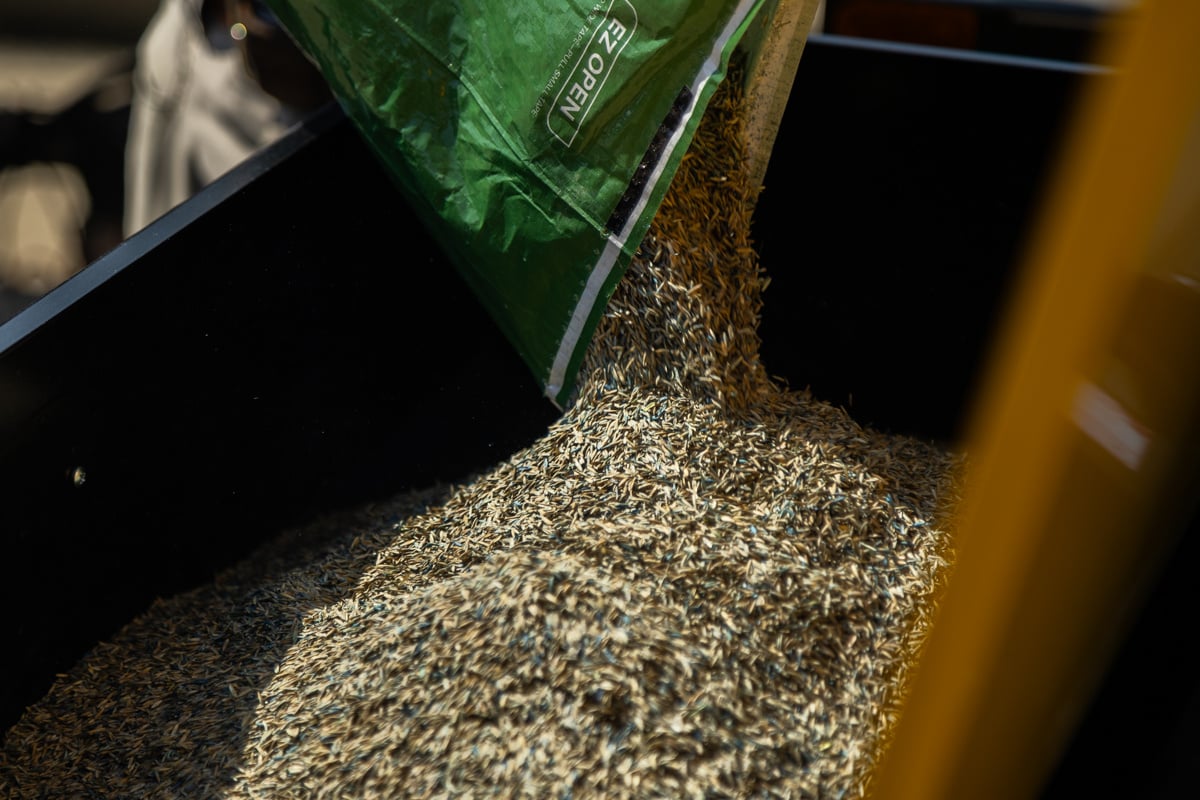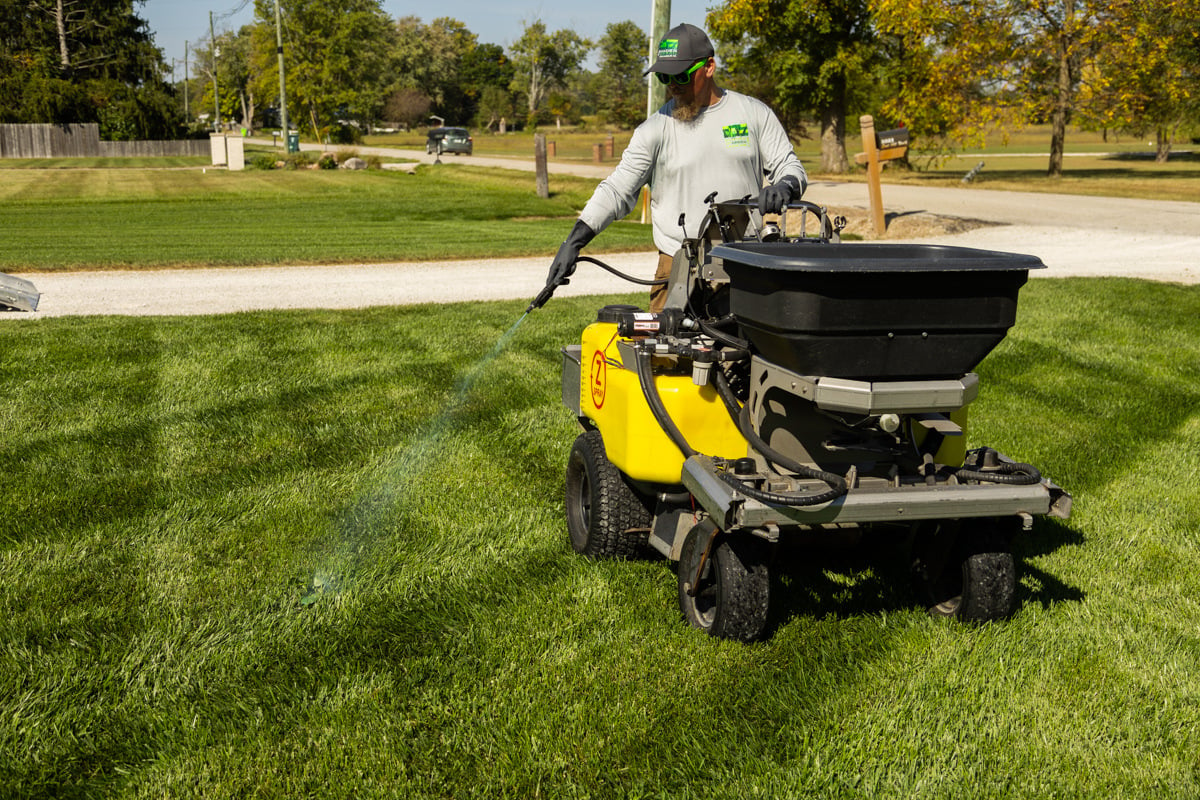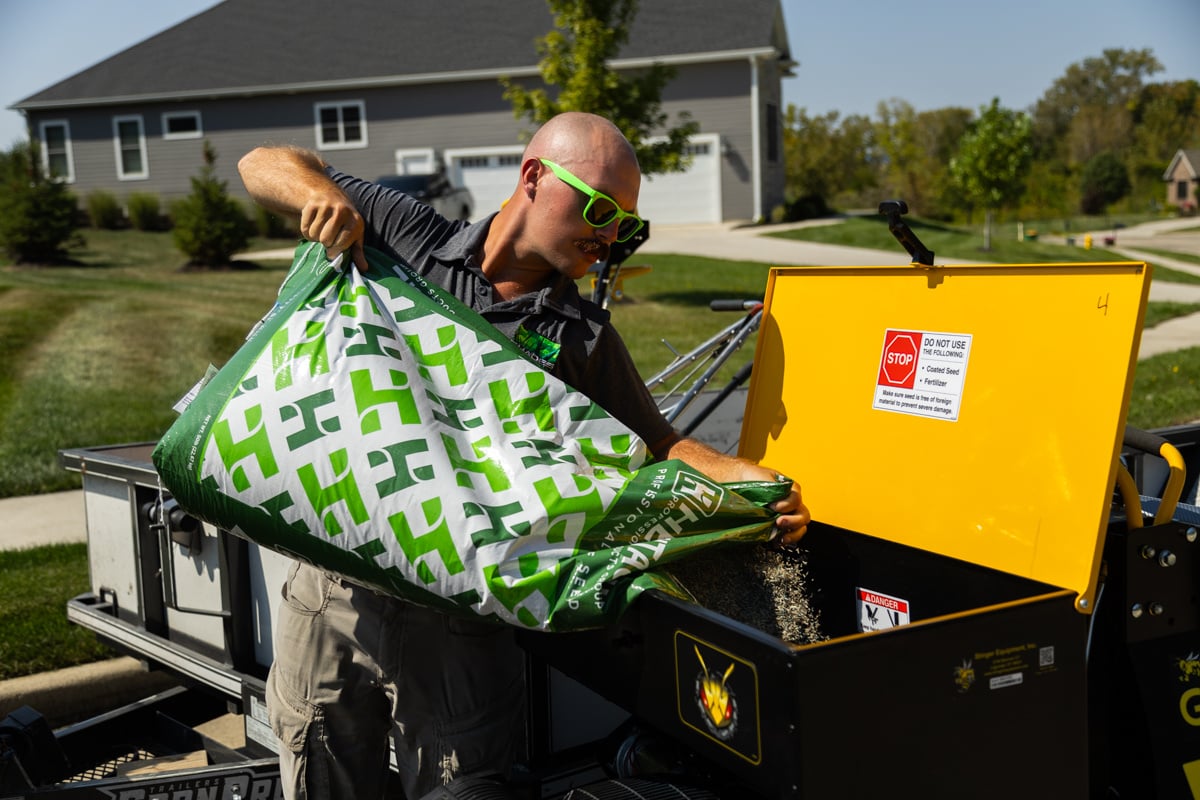

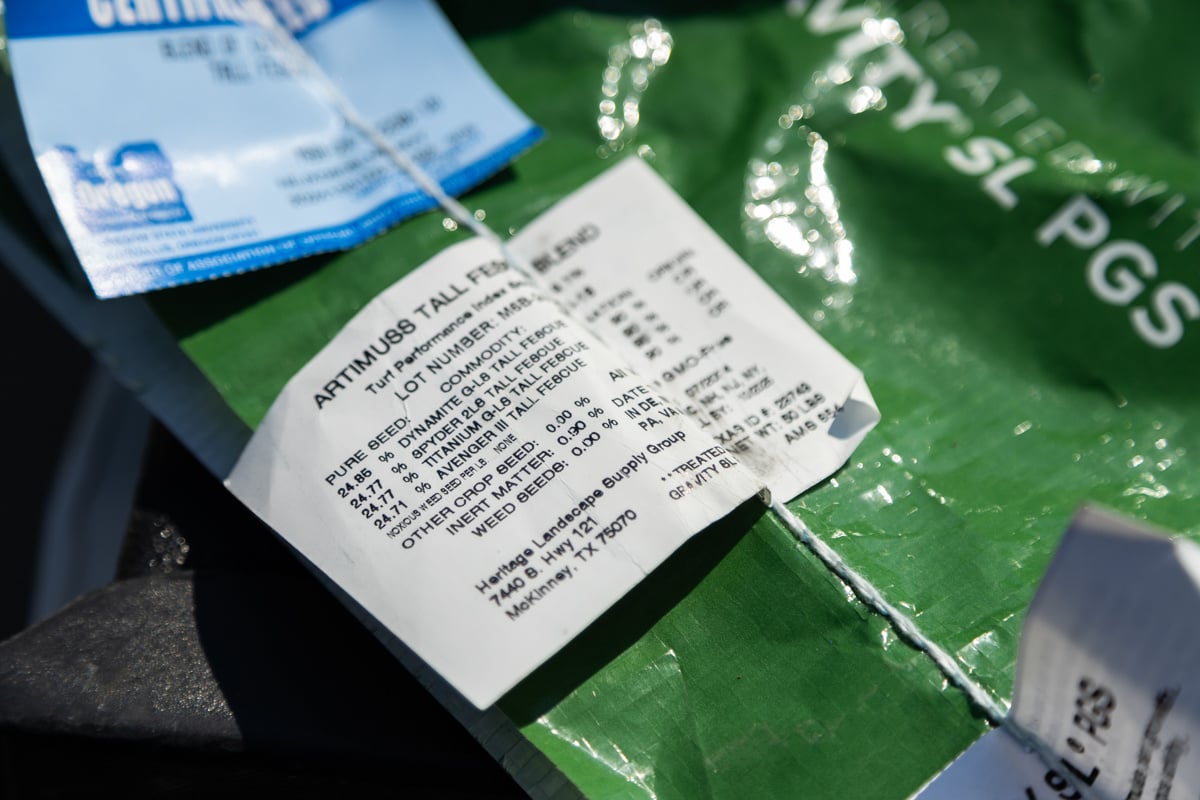
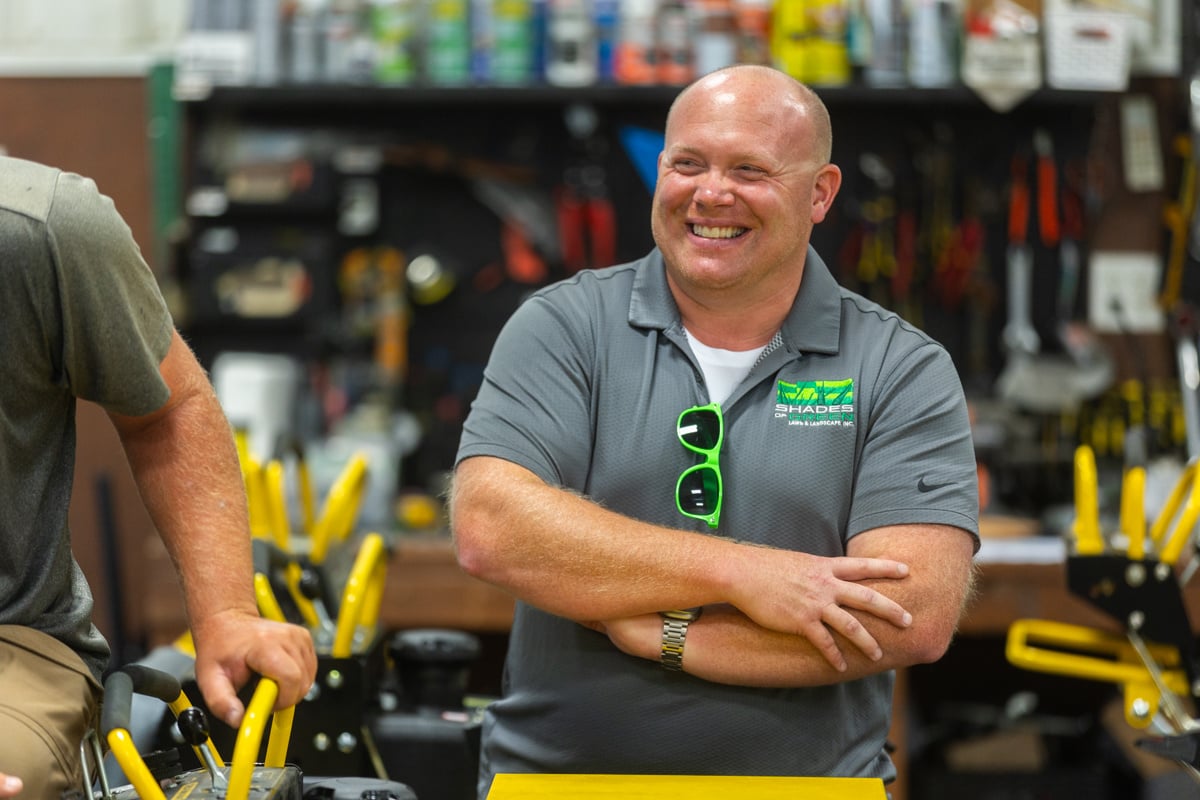
If you’ve ever stood in front of the grass seed section at the store trying to decide the difference between tall fescue vs. turf-type tall fescue, you are definitely not alone. They sound basically the same, right?
While they do share the same name, these two grasses could not be more different in terms of looks and lawn performance. Tall fescue is tough, coarse, yellowish, and great for utility spaces.
Turf-type tall fescue, on the other hand, is a glammed-up, lawn-friendly version with thinner blades, better color, and the kind of heat and drought tolerance Indiana lawns really need.
Let’s break down exactly what makes these two types of fescue different, which one works best for Indiana yards, and how to choose the right grass seed for a lawn that can take the heat and still look great.
Tall fescue and turf-type tall fescue (aka TTTF grass) might sound like the same thing, but they are not identical twins. They are more like cousins, related, but one definitely has better style.
Turf-type tall fescue is a fancier, improved version of regular tall fescue. It was specially bred to combine the toughness of traditional tall fescue with the polished, manicured look of bluegrass. It has thinner leaf blades, which means it looks smoother, denser, and way more “lawn goals” than the coarse stuff. But it doesn’t lose the durability that tall fescue boasts. In fact, TTTF grass is built to handle heat, drought, and even pesky insects thanks to its deep roots and natural resilience.
Tall Fescue (the original version) is kind of like the workhorse of the grass world. It’s strong, tough, and super durable. It has a coarse texture, wide blades, and grows in clumps, which makes it great for pastures, utility areas, and places where “function over fashion” is the vibe.
In a well-manicured lawn, this rugged, clumpy look sticks out. In early spring, tall fescue grass greens up faster than other grasses like bluegrass or TTTF so it is easy to spot. It tends to be both crunchier and yellower than traditional manicured lawn types. People often mistake it for a weed as it looks a little wild.
That’s where turf-type tall fescue comes in. It was developed by improving traditional fescue to be thinner-bladed, greener, and all around more attractive, while still keeping all of that rugged durability.
Kentucky Bluegrass is the classic lawn poster child; lush, deep green, soft underfoot, and beautiful. It spreads on its own and handles cold weather like a champ. It can also bounce back well from foot traffic. However, Bluegrass overall is high maintenance. It has shallow roots, needs lots of water, and needs careful maintenance. In our hot, dry summers, Bluegrass can really struggle if not well cared for.
Because of the extra maintenance requirements of Bluegrass, we love TTTF for Indiana.
Turf-Type Tall Fescue is a bunch-type grass, so it doesn’t spread on its own like Bluegrass, but with regular overseeding and proper care, it will stay thick and healthy.
Since we are regularly dealing with hot summers, unpredictable weather, and the occasional drought here in Indiana, Turf-Type Tall Fescue is our clear winner.
Choosing the right grass type isn’t always black and white, especially when you are trying to balance looks, durability, heat tolerance, and how much time you want to spend caring for your lawn all summer. Whether you are starting from scratch or thinking about overseeding to improve what you’ve already got, there is a lot to consider.
That’s where Shades of Green comes in. We’ve been caring for Indiana lawns long enough to know what works and what doesn’t in our wild Midwestern weather. In our experience, nothing beats Turf-Type Tall Fescue for Indiana lawns - which is why we recommend a 100% TTTF seed blend to all of our clients. And when you want lawn care that takes the guesswork out of getting a great lawn? We’ve got you covered there, too.
Ready for some help choosing the best lawn seed for your turf? Get started today by filling out our contact form.
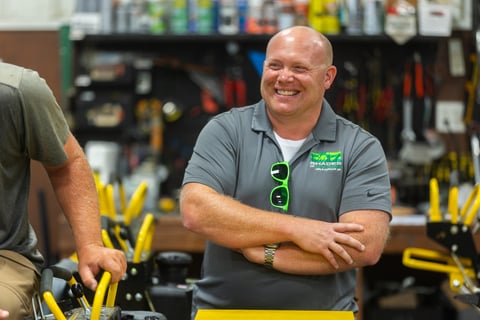
Cory is the heart and soul of Shades of Green. His dedication to doing right for our customers has been the driving force behind the company's success. With a degree in Turf Science from Purdue University, Cory continually strives to craft the best treatment plans using the latest technologies and innovative products, ensuring top-notch results for every client.


